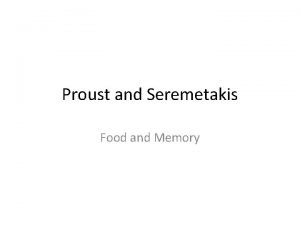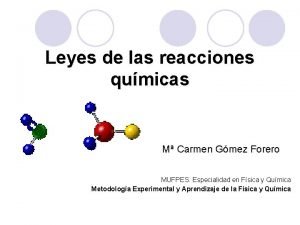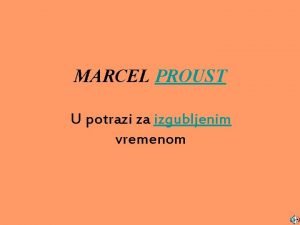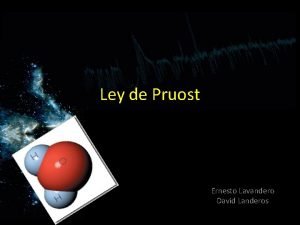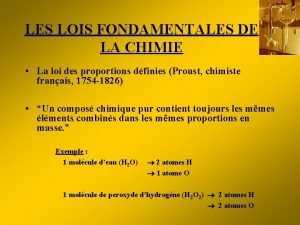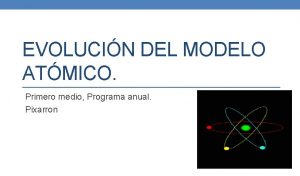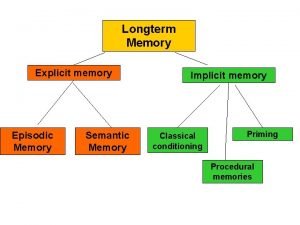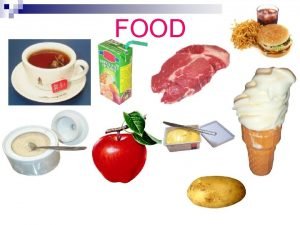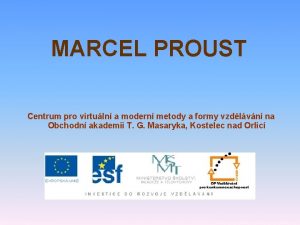Proust and Seremetakis Food and Memory First Paper
















- Slides: 16

Proust and Seremetakis Food and Memory

First Paper Prompt (now published) • What we eat can be deeply tied to our sense of selfhood. But the relationship between food and identity is not always uncomplicated. • Drawing from our readings and discussions, explore how, for African Americans, soul food is connected to family traditions (memory), social connection (community), and the history of slavery. • Select a set of contrasting stories among the individuals interviewed in Rouse and Hoskins, Klindienst, and the film Soul Food Junkies and explore how they are seeking in their different ways to come to terms with this complicated history in their search for well being. • To what extent does their struggle for health reflect dilemmas not just for consumers of soul food but of the wider US society in relation to changes in the food landscape? • Can you reflect on similar changes in your own family food traditions in terms of the shifts in food processing and dietary advice in the last 50 years?

The Proustian Moment • https: //www. youtube. com/watch? v=3 YG 4 h 5 Gb. Tq. U • What emotion does this episode evoke in the viewer? • Is it similar to what we experience when we read Proust? • How might we describe this feeling? • How does the film narrative differ from Proust’s narrative? • Involuntary memory: the memory that you do not seek but which beckons to you.

Close Reading The nature of memory as chiaroscuro. Freud’s theory of the unconscious. Screen images (fragments of memory) The goal of psychoanalysis is to construct a narrative of those fragments to find the source of present psychological distress (an origin story of the self). • Film instantiates the processes of mind that then turns around and shapes our understanding of these processes. • •

Memory and materiality The past is dead and gone… or is it? The idea of the haphazard nature of memory. Memory and materiality Celtic beliefs that objects hold the souls of those that we have lost • Resonance with the Kaluli? • •

Metonymy as a Signifying Structure • The pilgrim’s shell: Camino de Santiago de Compostela, the shell is associated with completing the pilgrimage at the Galician coast. • The principle of association or relationship (versus metaphor which is based on resemblance). • A part that stands for the whole • Metonymy appears in literature, film, dreams, myth, jokes, advertising and any other signifying activity. • The thing “encodes” something much bigger than itself.

The Work of Memory • Recognition rather than remembering (bottom of page 295). • The hard mental labor to follow the call into narrative. • For Proust this effort led to 7 volumes and over 4, 000 pages. • Read last three lines.


Seremetakis’s Peach • Peach: A generic term that travels well • Rodhakino: A local varietal of peach that is tied to place (read description, p. 298). • Traces of Proust in Seremetakis (see p. 299) • Unlike Proust, she is actively pursuing a memory, only to discover an absence. • David Masumoto, Epitaph for a Peach

David Masumoto, Epitaph for a Peach • "Sun Crest is one of the last remaining truly juicy peaches. When you wash that treasure under a stream of cooling water, your fingertips instinctively search for the gushy side of the fruit. Your mouth waters in anticipation. You lean over the sink to make sure you don't drip on yourself. Then you sink your teeth into the flesh and the juices trickle down your cheeks and dangle on your chin. This is a real bite, a primal act, a magical sensory celebration announcing that summer has arrived. "

A history of the senses • How do transformations of our sensory lives register larger changes that are invisible at the level of our everyday experience? • Taste is not remembered but recognized, but what is remembered is the pleasure one experienced, and what is registered is the tastelessness of the present. • The Breast of Aphrodite becomes a metonymic sign of much bigger forces. • How do we seize hold of these lost memories as a way of reflecting on our way forward? • The consequences for Greece were profound indeed!

nostalgia • Seremetakis is a traveler who has left and returned. • In what way, can she not come home again? • Heraclites: panta rei (all things must change) • Etymology: home sickness, 17 th century Swiss mercenaries. • First, identified as a physical disease, a process of wasting away and then re-categorized as a mental pathology, a form of melancholia (inability to let go of the lost object).

Nostalgia as a critical term • In English, we tend to trivialize this: A form of consuming the past as a commodifiable style: the nostalgia market. • It is seen as politically regressive: the return to a past that may not have really existed, or only existed for some. • Seremetakis feels it may also possess a more critical potential. • Historical unconscious • Material things, even in their absence, can register larger changes that may not be immediately recognizable. • Remembering what is “lost and gone” provides a dialectical contrast with the present. • This can be expressed in forms of desire for past experiences, even when the past itself may be more ambivalently viewed.

Implications for identity • Tastlessness of the present. • Participation in the global on the margins: abandoning place-based food traditions for more cosmopolitan ones. • Transformation of larger political economic structures. • Globalization of the agro-food chain. • The law of comparative advantage. • Loss of local food traditions as iconic of place (terroir).

Food, Identity, and Exile • Soup Over Bethlehem, Larissa Sansour • http: //www. youtube. com/watch? v=xh. Yx. FF 6 x. BA&playnext=1&list=PL 8 DE 3 FEB 1948221 99

Discussion Topic • Think of a “memory object” from your past. It may be a food, or not. • Describe its materiality with the same degree of close observation and metaphor as modeled in these readings.
 Proust food
Proust food Soluzioni il racconto della chimica
Soluzioni il racconto della chimica Leyes de las reacciones químicas
Leyes de las reacciones químicas Esercizi leggi ponderali
Esercizi leggi ponderali Hukum kekekalan massa
Hukum kekekalan massa Le particelle che costituiscono i raggi anodici
Le particelle che costituiscono i raggi anodici Legge proust
Legge proust Marcel proust u potrazi za izgubljenim vremenom
Marcel proust u potrazi za izgubljenim vremenom Marcel proust biografia
Marcel proust biografia Joseph louis proust biografia corta
Joseph louis proust biografia corta Les lois de la chimie
Les lois de la chimie Hukum proust
Hukum proust Joseph proust aportaciones
Joseph proust aportaciones Marcel proust portrait
Marcel proust portrait Swanni poolel
Swanni poolel Lavoisier zanichelli
Lavoisier zanichelli Massa molar adalah
Massa molar adalah
